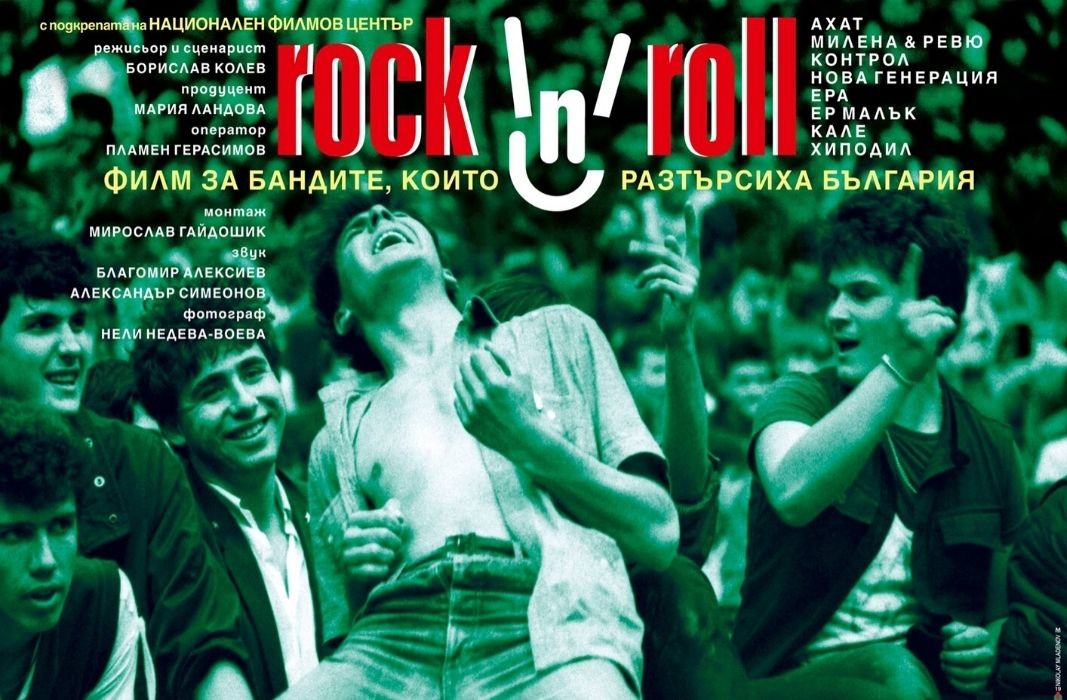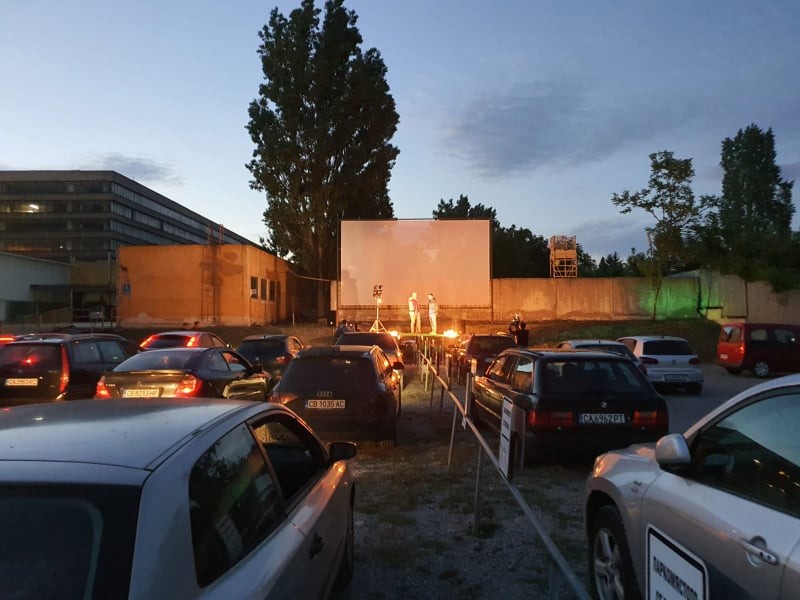In different parts around Europe, the pandemic has brought a new life to drive-in cinema – a trademark of American culture from the 1950s. The introduction of modern technologies and their rapid development has left car cinemas in oblivion. Currently, this form of entertainment is regaining its popularity, since keeping a physical distance is far easier than in the contemporary movie theatres.
“We have screenings every week. When a Bulgarian movie is shown, part of the creative team that has worked on it usually comes to the screening to present it in person. We strive to make the experience more than just a stop by at the drive-in cinema – we aim to make it a complex experience that people can remember,” says David Levy – one of the founders of the first car cinema in Sofia.
Since recently there have been screenings for motorcyclists as well, when the last of this kind worldwide were held in the 1990s in the US. The first screening that was shown on a screen 5 m by 8 m had more than 300 spectators on motorcycles.
“We had some people who were skeptical from the beginning, but we expect them to come to the subsequent events that we are going to organize. It’s only natural that every novelty provokes some suspicion. However, there was definitely some interest and we only expect it to grow. We are planning to work with multiple motorcycle clubs in the future.”

The Sofia car cinema program frequently features not only movies, but also a whole show, David Levy adds:
“For our first event, we showed the movie “Rock&roll”, which tells the story of the Bulgarian hard rock and punk rock from the 1980s and 1990s. Apart from this, we had rock band shows, dancing and fireworks… The program was full. We had two pairs of show hosts. One of them hosted the stage event, while the other pair - two young and talented actresses –were walking among the audience with a “Covid-meter” that we came up with ourselves. It was a 1.5-metre bar with which the physical distance was measured – partly as a joke, but also as an original way to adhere to the anti-epidemic measures.”

Covid-19 is the main reason for the development of this project, but not at all the only one. The organizing team was inspired by the romance of a past era and believes that drive-in cinemas give their its audience the opportunity to be more focused on the content and atmosphere of the movies:
“When one goes to the cinema with his or her car, he or she has the opportunity to enjoy both worlds –people are simultaneously alone or with their company, but also among the other people around. This creates a feeling of cohesion, without the exposure to any health-aversive conditions. Apart from this, one can enjoy full personal privacy and freedom in the boundaries of one’s own car, which cannot be offered in the ordinary cinema. There is an element of surprise and anticipation since everything happens under the open skies, under the stars. It is very important that we also sell popcorn because a cinema without popcorn is not a real cinema.”

But why has the interest in this type of screenings been lost for such a long time and is it possible that the current growth of curiosity can be preserved after overcoming the coronavirus crisis? According to David Levy, people’s willingness to visit such car and motorcycle cinemas will only increase with time:
“Maybe we have not been able to fully realize this, but for the last few months, we have been living in a new world. And it creates fertile ground for the revival of this culture because people are social animals and need contact with other human beings, even if only through the car window.”

English version Boris Totchev
Photos: SILDA drive-in cinemaScotland is known as "The Land of the Brave" and recognized as the "Homeland of the Bagpipe". An instrument that carries the soul of Bulgarian folklore in its sound. According to unofficial data, the "brave" Bulgarians who are building a life in this..
Bulgaria participates in the Global Money Week initiative for yet another year. Global Money Week is an annual global awareness-raising campaign to ensure that young people, from an early age, are financially aware, and are gradually acquiring the..
Bulgaria, as distant as a mirage, has become a beloved land for a man who has never set foot in this country. For nearly 50 years, Mr Jayanta Chakrabarti has been closely following everything that happens here and probably knows more about our history and..
An international conference “AI and education: The road to innovative teaching and learning” brings together 50 teachers from the Bulgarian schools..
The roof of the National High School of Applied Arts in Tryavna , a cultural landmark with almost a century of history, was destroyed in a fire early this..

+359 2 9336 661
